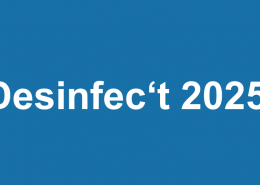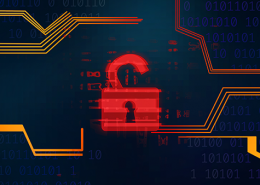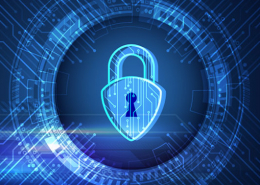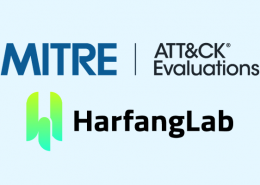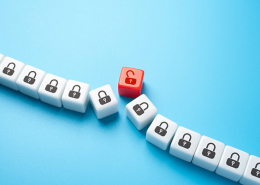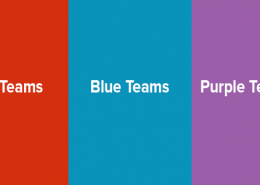 https://www.ikarussecurity.com/wp-content/uploads/2025/06/OWASP-Top-10.jpg
166
304
IKARUS
https://www.ikarussecurity.com/wp-content/uploads/2025/02/IKARUS-Security-Software-4-1.png
IKARUS2025-06-18 14:37:552025-06-20 11:03:57OWASP Top 10 for LLMs: New Security Challenges due to AI
https://www.ikarussecurity.com/wp-content/uploads/2025/06/OWASP-Top-10.jpg
166
304
IKARUS
https://www.ikarussecurity.com/wp-content/uploads/2025/02/IKARUS-Security-Software-4-1.png
IKARUS2025-06-18 14:37:552025-06-20 11:03:57OWASP Top 10 for LLMs: New Security Challenges due to AI Large selection, low effort, fast price comparisons, convenient delivery – online shopping continues to be in trend. In addition, special offers such as Cyber Monday and other online bargains lure us into the web shops. The advantages are obvious – but what are the risks of ordering online?
Large selection, low effort, fast price comparisons, convenient delivery – online shopping continues to be in trend. In addition, special offers such as Cyber Monday and other online bargains lure us into the web shops. The advantages are obvious – but what are the risks of ordering online?
With our tips you can protect yourself from these 7 typical dangers when buying online:
-
Fake shops on well-known, large platforms
The operators of fake shops usually offer branded goods at very low prices via well-known and frequently used platforms. Interested parties are asked to contact the retailer directly by email. Also the payment is not to be completed over the platform, but via PayPal, Western union or direct transfers. As soon as the money arrives, the merchants are usually no longer available. The platform operators do not refund anything, as no payment or purchase contract has been made via their system. Become suspicious if prompted to use other channels than intended!
-
E-Skimming
The gathering of personal data poses a particular threat to bargain hunters. Criminals use the so-called “skimming code” to unnoticed modify the payment pages of retailers in order to access credit card information and personal data. The attackers sell the stolen data or use the information for themselves. The principle of e-skimming is not new – the “conventional” method used a physical device that was installed on site at an ATM or credit card reader. Pay attention to a valid encryption as well as certification marks of web shops and activate an additional 2-factor verification for your credit card payments!
-
Fraud with fake websites
Fraudsters imitate well-known websites completely and equip them with similar logos and domain names. Often only small differences indicate the fraud. Do you receive emails with tempting offers? Type in the URL of the shops yourself instead of clicking on links – often the wrong domains are almost impossible to recognize due to the use of special characters. If you want to try out new web shops, be sure to check the correct spelling of the domain names. Make sure the URL has “https” and a lock icon. The certificate should be issued to the company – very often fake shops use free certificates from e.g. “Let’s Encrypt”. If the website does not offer an imprint or only has vague exchange or return policies, be suspicious as well!
-
Free is not free of charge
Free offers on the Internet are often to be considered with caution. Always be suspicious about such very tempting offers, especially if you have to register with your name, address, telephone number and other personal data. Especially in the case of free offers or if the deal is almost too good, you might find additional costs or fees in the small print – or your data might be used for other purposes.
-
Subscription traps
Particularly in service distribution, unserious providers still make use of the so-called subscription trap. A very inexpensive “entry-level subscription” or a similar offer lures you to make a contract – and usually automatically turns into a long-term, expensive subscription. These “details” are usually only insufficiently conveyed in the fine print when ordering. The surprise about an unwanted deal follows later.
-
Hidden Costs and Charges
Often unreliable suppliers attract with alleged special offers, which increase in the course of the contract by further costs, for example for delivery and other additional fees. The result is usually considerably higher than the price promised at the beginning. Such practices are common, but not exclusive, to various travel and airline providers. Always pay attention to transparent costs and fees and check all prices and positions again before ordering!
-
Is the shop really where you think it is?
Do not be tricked by the web address and domain extension. A domain ending with .de, .eu or .at is not a clear indication of the actual location of the merchant. It is often difficult to get your rights when dealing with partners from outside the EU. You may also have to deal with customs clearance. Check the terms and your rights in the imprint of the web shop; reliable operators must have them online.
We wish a happy and safe online shopping!

